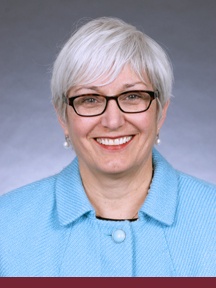
Written by Dr. Filomela Marshall
 By Dr. Filomela Marshall • November 12, 2014
By Dr. Filomela Marshall • November 12, 2014
Nursing has always been a rapidly transforming profession. Healthcare legislation, the demands of an aging and diverse population, improved access, and advancements in health information technology have accelerated the rate of change and growth in this field faster than ever before.
So how are nurses of today supposed to prepare for developments of tomorrow?
With the ever-evolving changes in our nation’s healthcare system, any success will depend on the critical role that nurses will play. This new system will offer advantageous opportunities that nurses can use to improve their career prospects, training and patient-centered care.
In a 2010 study by the Institute of Medicine (IOM), care within healthcare facilities will grow more complex, and nurses must make critical decisions using sophisticated, life-saving technology coupled with complex information management systems that require skills in analysis and synthesis. Nurses must be able to apply sharp critical thinking skills, compassion and collaboration in day-to-day job responsibilities, while demonstrating a commitment to lifelong learning.
To ensure nurses are able to meet these demands and provide relevant care, nurses are encouraged to achieve higher levels of education and training. A driving goal of the IOM is to increase the number of nurses with BSN degrees to 80 percent by 2020. Meanwhile, in a 2013 national survey conducted by the American Association of Colleges of Nursing (AACN), the results revealed that 43.7% of hospitals and other healthcare settings require new hires to have a bachelor's degree in nursing (up 4.6% since 2012), while 78.6% of employers showed a strong preference for graduates of BSN programs.
Nurses with an advanced education would be prepared in a wide range of competencies like health policy, leadership, communication, evidence-based practice, healthcare financing and technology. Such training would ensure that qualified nurses are ready to handle any nurse shortages and advance to master’s and doctoral levels when workforce demands call.
As healthcare continues to embrace new technologies and an improved information infrastructure, nurses will be crucial as the focus of healthcare shifts from the practice environment to the community setting. Nurse roles will expand to encompass strong leadership positions, ready to interact as full partners with physicians and other healthcare professionals. Their regular interactions with patients and understanding of healthcare practices places them in ideal positions to take active roles in decision making and health policy. Nurses must prepare to act in this transformative environment.
The demand for healthcare services will grow over the next five to 10 years, particularly due to an ageing population facing increased chronic conditions like arthritis, dementia, hypertension and diabetes. Nurses must be prepared to educate these patients and plan for their extended care. Meanwhile, as a result of the 2010 Affordable Care Act (ACA), an additional 32 million individuals now have access to healthcare and healthcare services. As a result, the Bureau of Labor Statistics foresees a huge spike in health-related job opportunities, coupled with the need to replace workers who will retire over the coming decade.
Looking ahead, perhaps this is a true turning point in the profession. The advancements and changes in our healthcare system, as well as the projected surge in the number of patients seeking care, will require nurses to practice to the full extent of their education, abilities and training. They will play an essential role as the healthcare industry undergoes this fundamental transformation. It is more important than ever before that nurses be adaptable to change and willing to do what is necessary to make this new vision of healthcare a reality.

Written by Dr. Filomela Marshall